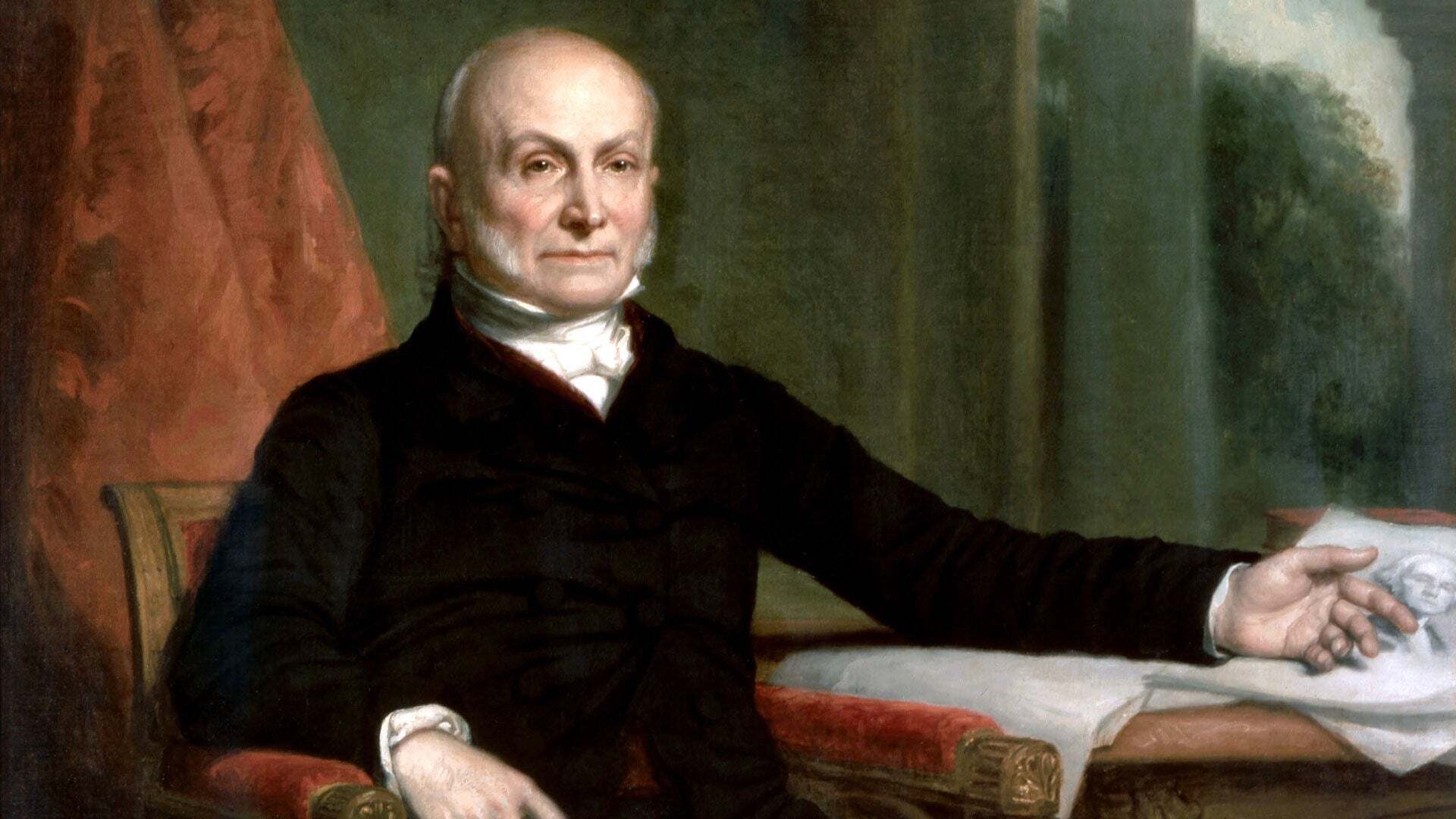
Ever wondered about the intriguing life of John Quincy Adams? Well, you're in for a treat! As the sixth President of the United States, his life was anything but ordinary. From his diplomatic ventures before presidency to his passionate post-presidential career, Adams was a man of many talents and a few quirks. Did you know he was the first president to be photographed? Or that he had a pet alligator living in the White House? Yes, you read that right—a pet alligator! Dive into the world of this fascinating figure with our list of 23 best interesting facts. Prepare to be amazed, entertained, and perhaps even a bit bewildered by the extraordinary life and times of John Quincy Adams. Let's get started, shall we?
Key Takeaways:
- John Quincy Adams, the son of a former US President, had a unique upbringing that shaped his diplomatic skills and multilingual abilities, leading to a diverse and impactful political career.
- Despite facing opposition, John Quincy Adams advocated for economic development, civil rights, and education, leaving a lasting legacy as a progressive and influential figure in American history.
Early Life of John Quincy Adams
John Quincy Adams, born on July 11, 1767, was not just any child; he was the son of John Adams, the second President of the United States, and Abigail Adams. His early exposure to the political strife and revolutionary ideas of his time profoundly shaped his character and future.
-
Born into politics, Adams spent much of his childhood in Europe, where his father served as a diplomat. This unique upbringing exposed him to various cultures and languages, making him fluent in French, Dutch, and German by adulthood.
-
At the tender age of 14, Adams accompanied Francis Dana to Russia, serving as his secretary. This trip was instrumental in developing his diplomatic skills and understanding of international relations.
John Quincy Adams's Political Career
Adams's political career was as diverse as it was long. He served in numerous capacities, including as a Senator, Secretary of State, and President.
-
Monroe Doctrine: As Secretary of State under President James Monroe, Adams played a key role in formulating the Monroe Doctrine, which warned European powers against further colonization in the Americas.
-
In 1824, Adams won the presidency in one of the most contentious elections in American history, decided by the House of Representatives since no candidate won a majority of the electoral vote.
His Presidency and Policies
John Quincy Adams's presidency was marked by his strong advocacy for federal involvement in economic development and his vision for a national university and observatory.
-
Despite facing fierce opposition and achieving few legislative victories, Adams was a proponent of the American System, which aimed to strengthen the economy through tariffs, a national bank, and infrastructure projects.
-
Against Slavery: Adams was a vocal opponent of slavery, a stance that was not popular in his time and contributed to his being a one-term president.
Post-Presidency and Legacy
Unlike many former presidents, Adams's career did not end after leaving the White House. He went on to serve in the House of Representatives, where he had a significant impact.
-
Adams was the only president to be elected to the House after his presidency, where he served for 17 years until his death in 1848.
-
Amistad Case: Perhaps his most famous post-presidency achievement was his defense of the African captives of the Amistad during their trial in the Supreme Court, where he argued for their freedom and won.
-
Adams suffered a fatal stroke on the floor of the House, collapsing at his desk. He died two days later, on February 23, 1848, marking the end of a lifetime of public service.
Personal Life and Quirks
John Quincy Adams was not only a political figure but also a man of personal idiosyncrasies and interests that made him unique.
-
Morning Rituals: Adams was known for his morning swims in the Potomac River, a habit he kept throughout his life, even during his presidency.
-
An avid writer, Adams kept a diary from the age of 12 until his death, providing a valuable insight into his life and times.
-
Family Man: Despite his busy career, Adams was a devoted family man. He married Louisa Catherine Johnson, with whom he had three sons and a daughter.
Intellectual Pursuits and Achievements
Adams's intellect was not limited to politics; he had a wide range of interests that he pursued throughout his life.
-
Harvard Professor: Before his presidency, Adams was appointed as the Boylston Professor of Rhetoric and Oratory at Harvard University, reflecting his passion for literature and rhetoric.
-
He was also an accomplished poet, often writing verses about his political and personal experiences.
-
Astronomy Enthusiast: Adams had a lifelong interest in astronomy and advocated for the establishment of a national observatory, which was realized posthumously as the Naval Observatory.
John Quincy Adams's Impact on America
John Quincy Adams's legacy is a testament to his dedication to public service and his vision for America.
-
His advocacy for civil rights and opposition to slavery positioned him as a progressive figure ahead of his time.
-
Diplomatic Achievements: Adams's diplomatic efforts significantly shaped U.S. foreign policy, laying the groundwork for America's stance against colonialism and intervention in the Western Hemisphere.
-
Educational Contributions: His push for a national university and observatory highlighted his belief in the importance of education and scientific advancement for the nation's future.
-
Adams's role in the Monroe Doctrine and his diplomatic skills helped establish the United States as a sovereign and respected nation on the global stage.
-
Legal Reformer: His legal arguments in the Amistad case not only freed the captives but also set a precedent for the legal battle against slavery.
-
Environmental Advocate: Adams was one of the early presidents to express concern about environmental issues, advocating for agricultural and environmental studies.
-
Cultural Impact: Through his writings, speeches, and policies, Adams influenced American culture, promoting values of education, moral integrity, and public service.
-
Lastly, John Quincy Adams's life and career serve as a powerful example of how dedication to public service and adherence to one's principles can leave a lasting impact on a nation.
A Glimpse into Adams' Legacy
John Quincy Adams, a figure of immense historical significance, leaves behind a legacy that's as complex as it was impactful. From his early days as a diplomat to his presidency and beyond, Adams' contributions to American politics and international relations are undeniable. His advocacy for education, his stance against slavery, and his vision for a united nation continue to inspire. His personal diary, offering an intimate look into his thoughts and the era he lived in, remains a valuable resource for historians and enthusiasts alike. Adams' life teaches us the importance of dedication, intellectual rigor, and moral clarity in public service. As we reflect on his myriad achievements, it's clear that his influence on the fabric of American history is both profound and enduring.
Frequently Asked Questions
Was this page helpful?
Our commitment to delivering trustworthy and engaging content is at the heart of what we do. Each fact on our site is contributed by real users like you, bringing a wealth of diverse insights and information. To ensure the highest standards of accuracy and reliability, our dedicated editors meticulously review each submission. This process guarantees that the facts we share are not only fascinating but also credible. Trust in our commitment to quality and authenticity as you explore and learn with us.


